‘Voter anger over Erdogan’s interference in Syria, war fallout, cost him dearly: Analyst
By Ali Ghorban Bagheri
A Lebanese political expert says incumbent Turkish President Recep Tayyip Erdogan failed to get the support of people in urban areas in the recent election mainly due to his interference in Syria and the fallout of his intervention in the war.
In an interview with the Press TV website, Nasser Qandil, editor-in-chief of Lebanon’s al-Binaa newspaper, noted that most of the youths in cities did not vote for Erdogan – who has been at the pinnacle of Turkish politics for more than two decades – with the slogan “20 years is enough.”
“The issue of Syrian refugees and Erdogan’s role in the Syrian war was among the reasons behind the decrease in his votes in cities,” he said.
“This is while his rival has promised to transfer refugees to their country within two years and deport them if necessary.”
Erdogan gained 49.5 percent of the vote in Sunday’s presidential race compared to 44.9 percent for his challenger, Kemal Kilicdaroglu.
As neither candidate reached the 50 percent threshold needed to win outright, a runoff vote will take place on May 28.
Erdogan took home fewer votes in 2023 than he did in the 2018 presidential contest.
Qandil said that in the second round of the election, Erdogan will face challenges such as heavy economic and social costs of Syrian refugees residing in Turkey, the growing unemployment rate, the rent surge, and the rising competition between Turkish and Syrian workers.
“With the support of Russia, Iran and Persian Gulf states, Erdogan can draw a two-year framework for the Turkish withdrawal from Syria, the return of refugees, and the dispersal of terrorists from Syria’s northeast and northwest,” he said.
“The second round may give better opportunities to Erdogan’s rival, unless he bravely plays his trump card and voices readiness to formulate a timetable for the return of Syrian refugees.”
For more than a decade, Turkey has backed militants fighting against the government of Syrian President Bashar al-Assad, and sent its own troops into the Arab country’s northern areas.
In recent months, however, the strategically-located US-led NATO member has taken steps to normalize relations with Syria.
Also in his interview, the Lebanese political analyst compared Erdogan with Kilicdaroglu, saying the incumbent president represents a political religion close to the West, while the latter acts for the Western-oriented and anti-religious secular movement.
Regarding international developments, he argued that Erdogan tends to pay attention to political and economic partnerships, but his rival wants Turkey to play a regional role without being drawn into war and expansionism.
Qandil further emphasized that Erdogan has managed to build a national economy while Kilicdaroglu, with a tendency towards the US, seeks to realize liberalism, eliminate the government’s role in the economy, and legalize homosexuality.
Unlike large cities, suburbs favored Erdogan as they supported an Islamic national identity aligned with the region and were unhappy with Europe’s racist approach towards Turkey’s EU accession bid, he said.
North Korea warns of 'terrible response' to drone incursions from South
Whistleblowers: CPJ scrapped 'impunity index' to shield Israel
Trump creating conditions that may lead to 'good deal' with Iran: Netanyahu
VIDEO | Netanyahu fails to dissuade Trump from Iran talks
Iran puts ‘Jam‑e Jam 1’ into orbit in milestone for national broadcasting
‘Colonial eradication of Palestine’: Iran condemns Israel’s West Bank annexation push
Thousands block Melbourne as Israeli president ends contentious Australia visit
Nearly 800 Lufthansa flights cancelled as pilots, cabin crew strike


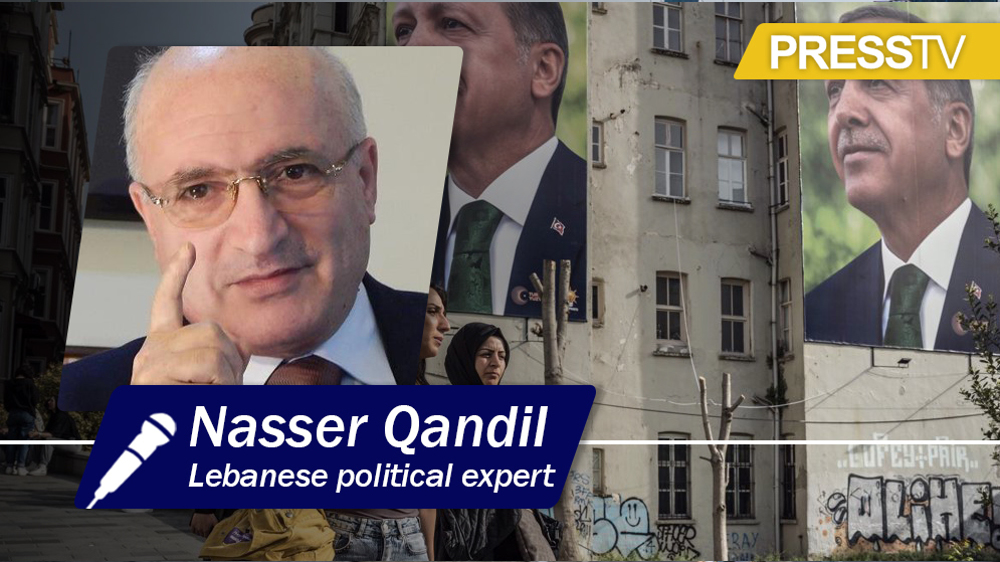
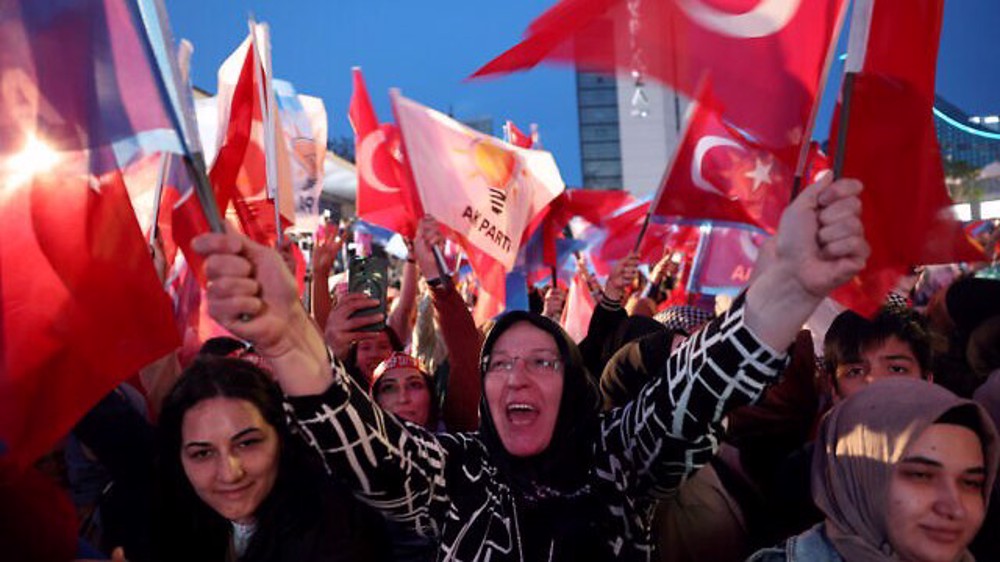
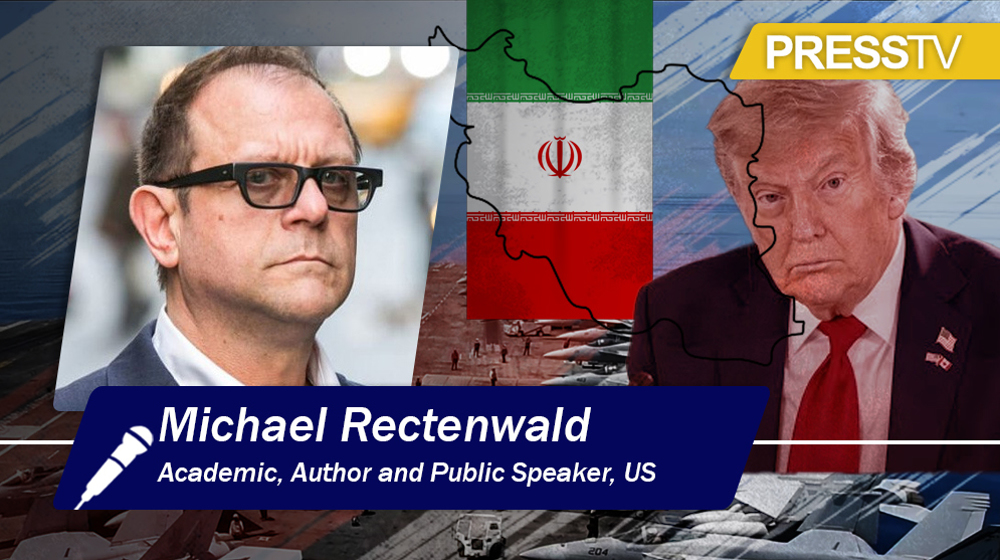
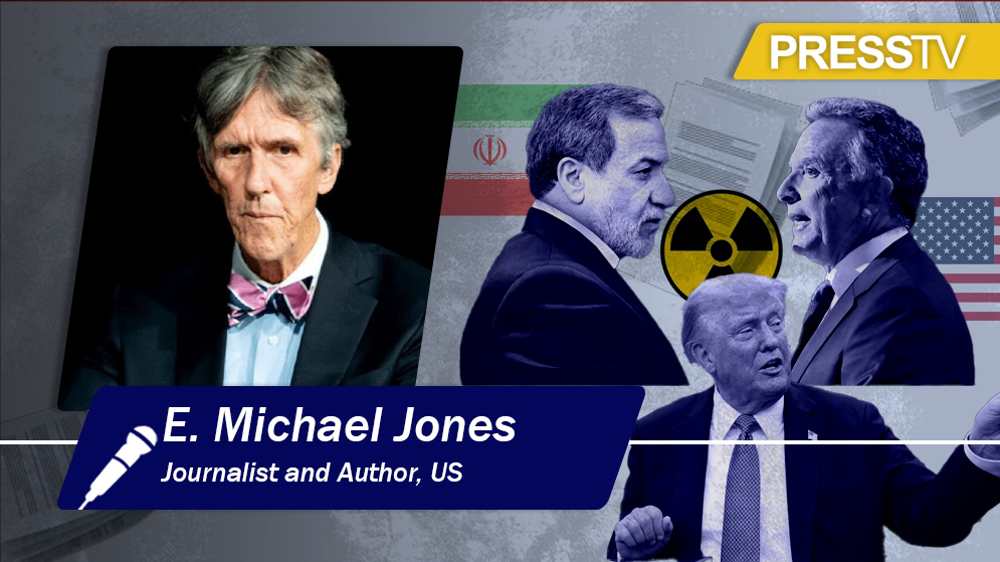
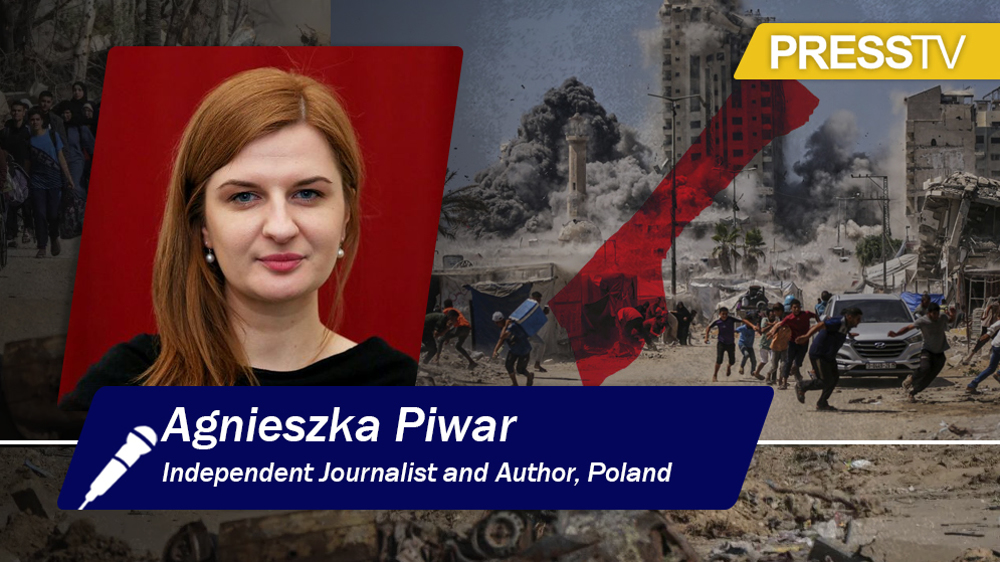



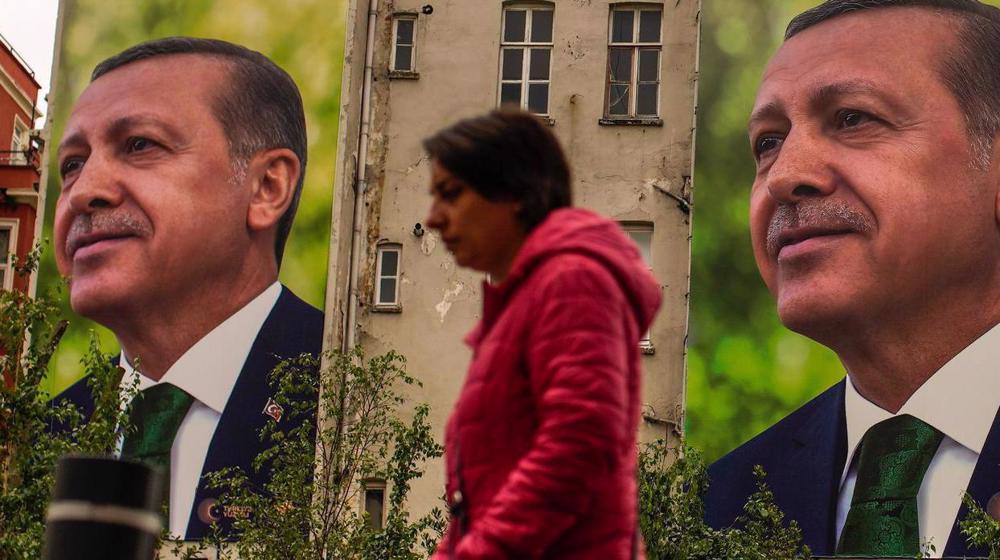
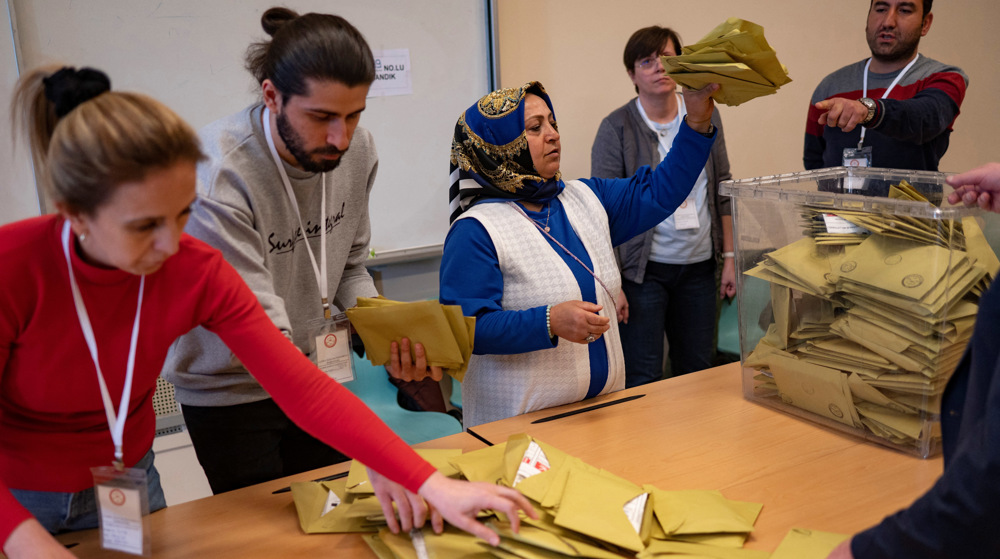
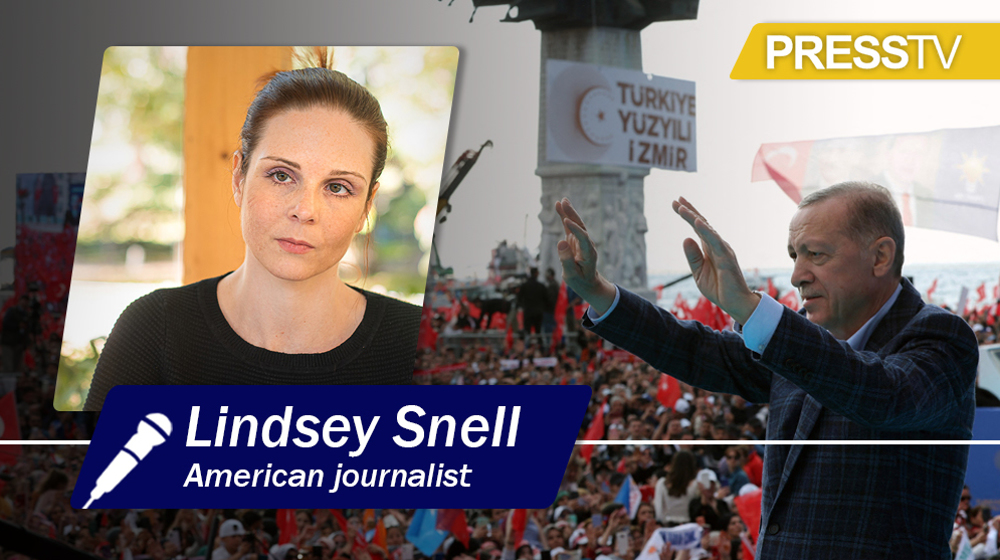
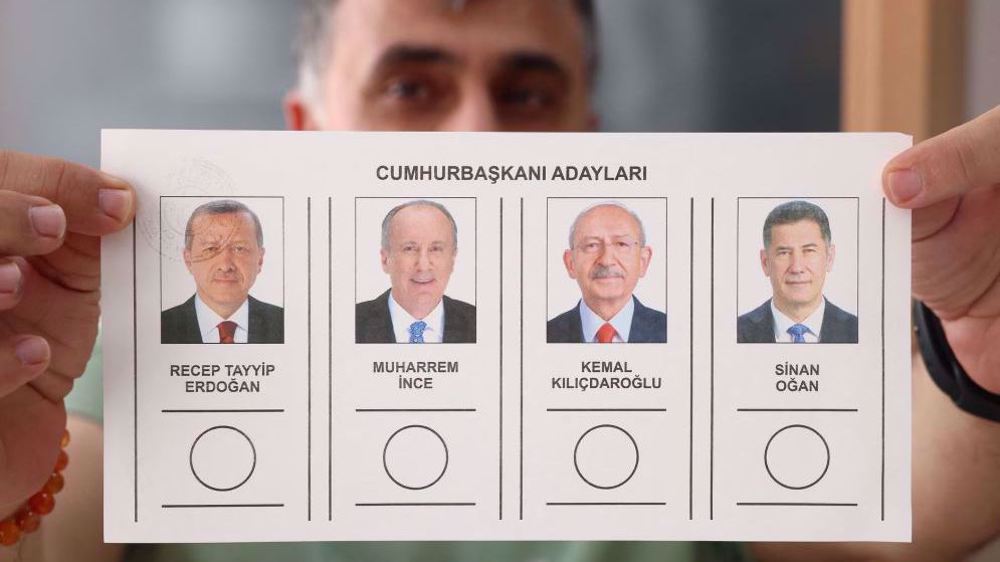
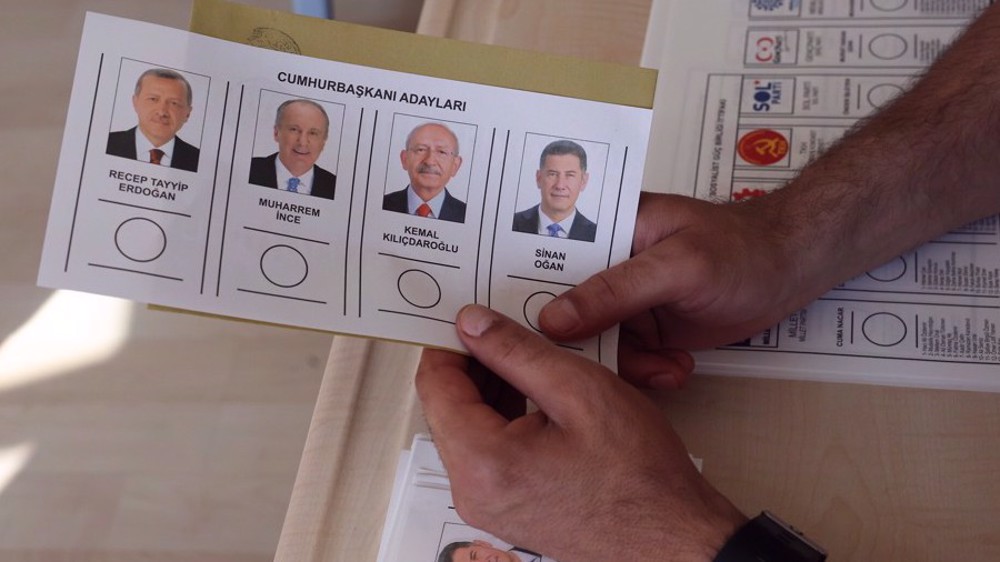
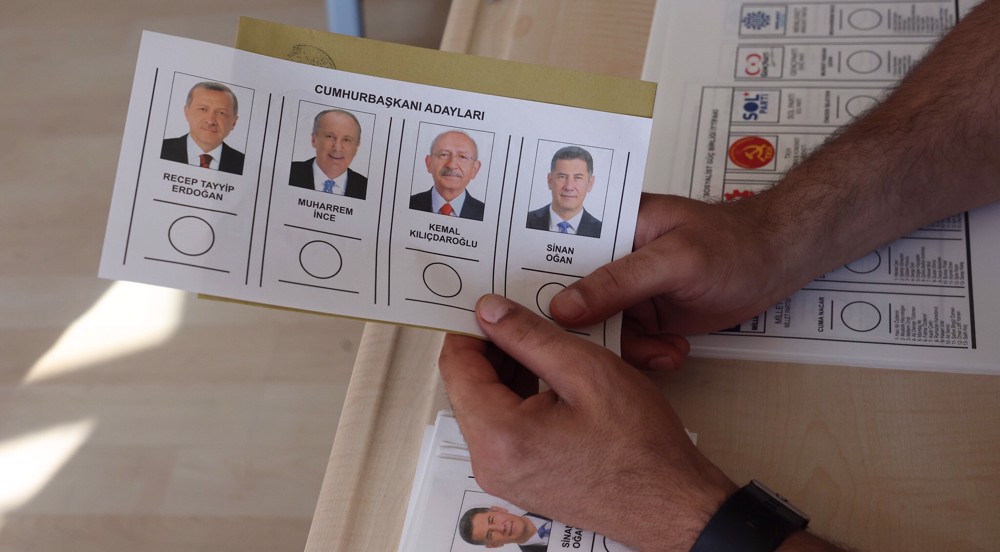

 This makes it easy to access the Press TV website
This makes it easy to access the Press TV website